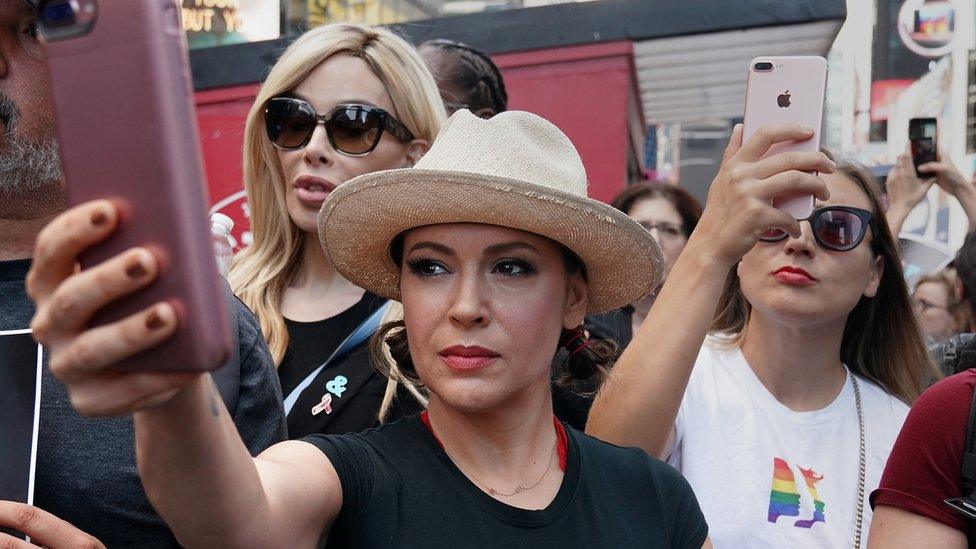Speaking up about rape in conservative Kazakhstan
- Published
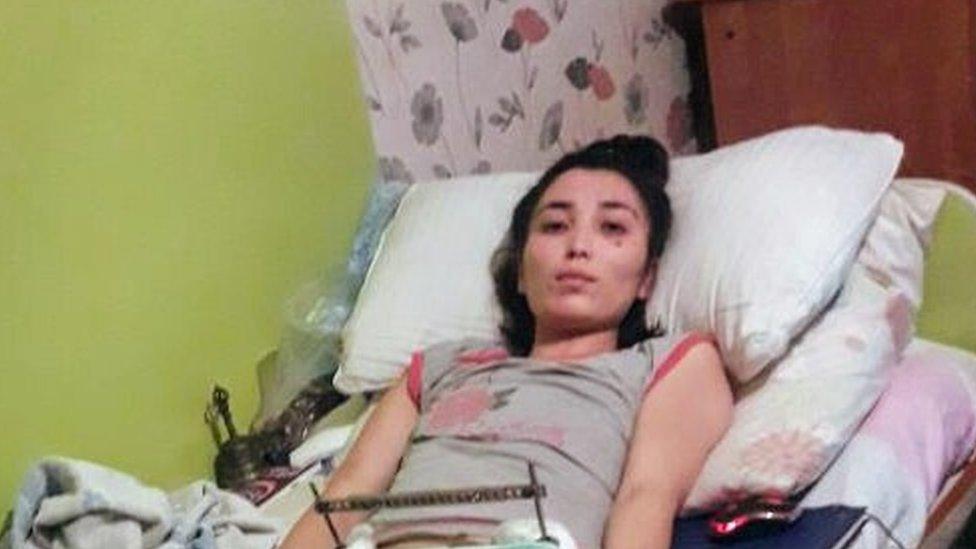
Saina Raisova jumped out of a window to escape her rapists - breaking her pelvis and a heel
In the conservative Central Asian republic of Kazakhstan, many women are afraid to speak up about rape and sexual harassment. But a local campaign - one which predates the MeToo and Time's Up movements - has been urging women not to stay silent.
Saina Raisova almost breaks down when she recalls the day she was raped by two men last year.
The 26-year-old jumped out of a third floor window in order to escape from her attackers, breaking her pelvis and a heel.
She survived her fall, but says that following her rape, "the first thing I thought of was to commit suicide. I thought I wouldn't be able to live with this."
Saina lives in constant pain now due to her injuries. But it's been no less harrowing for her to achieve justice.
Speaking up about sexual assault is considered extremely shameful by many in Kazakhstan, and Saina tells the BBC she faced severe pressure to stay silent about her rape.
"I had to fight not only with law enforcement agencies, but also with myself and with my relatives. Because they were shocked. They didn't understand.
"'Why do you need to make this public,' they said. 'Leave it with Allah. He will punish.'
"My parents wanted to hide this completely, it was a great stigma for them."
Last year, after seeing that the criminal case she brought was progressing slowly, and fearing that the rapists could go unpunished, Saina decided to go public and talk about her case.
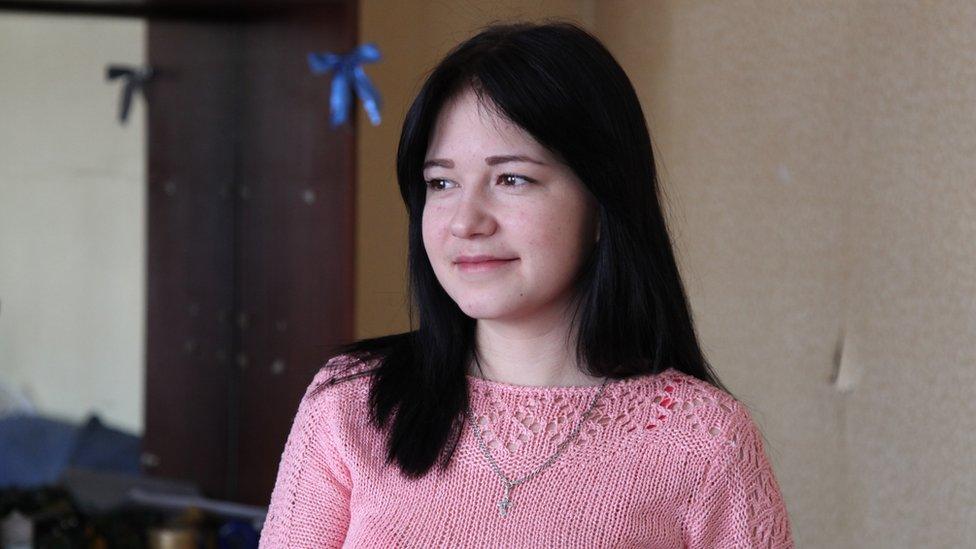
Yelena Ivanova, 19, also made the rare move of reporting an alleged rape to the police
In January, the court sentenced one of her rapists to 10 years. Another man, alleged to be the second rapist, is still on the run.
"Many people blame victims, not the criminals. They tell me you shouldn't have gone, you shouldn't have agreed [to meet], you got what you wanted," she says.
Saina is one of many women to join the "don't be silent" movement - a group that helps victims of sexual violence get their voices heard.
Since being set up in 2016 the movement has helped 19 women take their cases to court and within one year of the launch, the #НемолчиKZ hashtag (which translates to "don't be silent") has been used nearly 100,000 times online.
Dina Smailova, a former producer of children's music shows, is one of the founders of the movement. The movement began after she revealed on Facebook that she had been raped when she was 20.
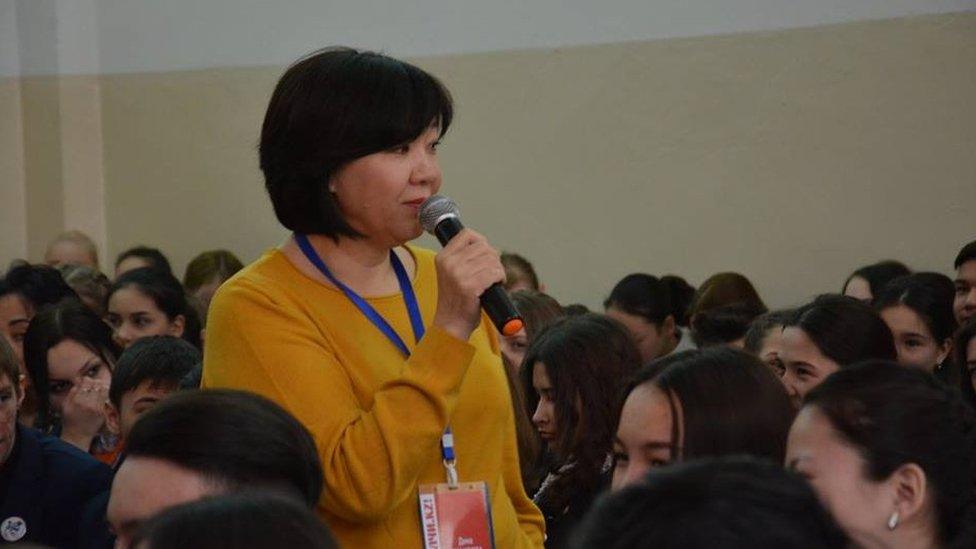
Dina Smailova: "It's not shameful to be raped, it's shameful to be a rapist"
Her post caused a storm on social media - people started sharing their stories, offering help and calling for action.
Dina says the key aim of the movement is to try to change attitudes.
"Society has imposed this concept of shame, the victim is always dirty, not the rapist.
"We say it's not shameful to be raped, it's shameful to be a rapist. That's why we go public showing our faces and saying that we're not ashamed. They should be ashamed."
According to the Committee for Legal Statistics, there were 2,250 cases of sexual violence registered in Kazakhstan in 2017. But activists say these figures do not reflect reality since the vast majority of victims prefer not to go to the police.
The "don't be silent" movement organises seminars to raise awareness amongst students and law enforcement agencies - and public talks where victims can share their experiences.
At one of their events Yelena Ivanova, 19, spoke openly for the first time about being raped.
Last year, she took a microphone and faced the crowd, and spoke between pauses and sobs.
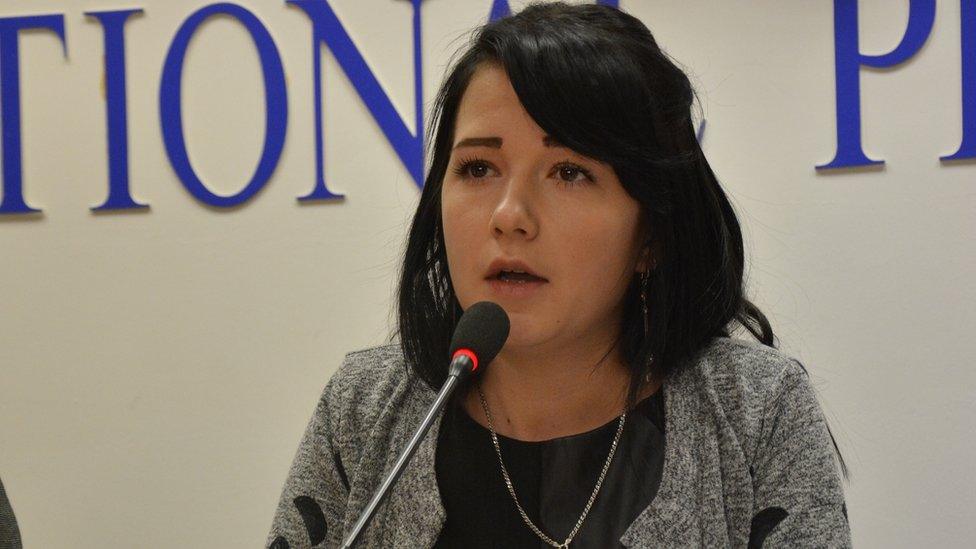
Yelena Ivanova: "I know that I am not alone in my struggle"
"I went through… harassment and rape," she said, her weak voice cutting through the silence.
Some in the audience wiped away tears as they listened to her.
Despite the taboo over speaking about rape, Yelena said speaking up was her only option.
"If you're not silent, then people, the society will see that you're fighting for the truth."
"And when other people join, I feel more secure as I know that I am not alone in my struggle," she told the BBC.
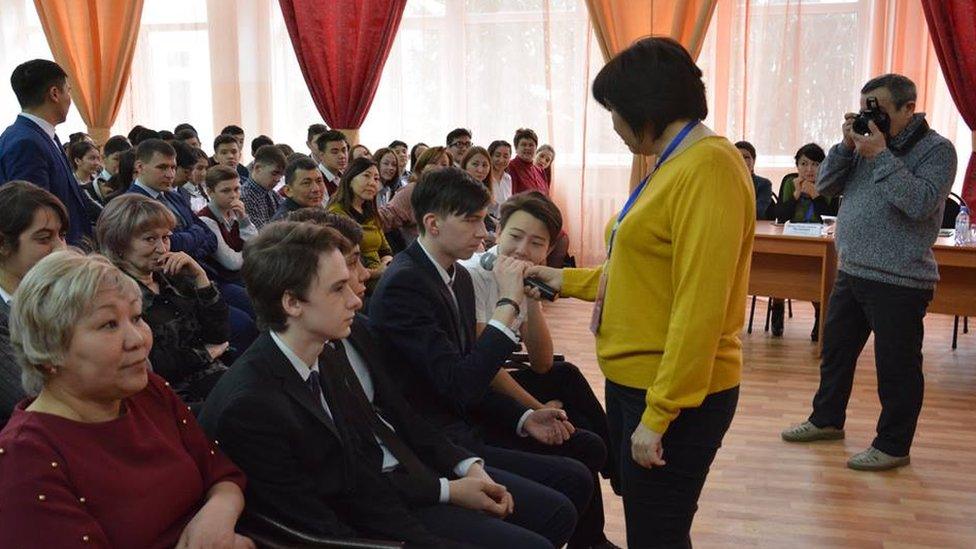
Dina Smailova holds events to try to change public attitudes
"Don't be silent" has also been lobbying for legislation that better protects victims of sexual violence.
Under current legislation, sexual assault cases can be closed if both sides reconcile and the assault is not considered an "aggravated assault" such as a rape over an extended period of time or gang rape.
But critics say victims can come under massive pressure to accept financial compensation and agree to reconcile with the attacker - from relatives of the defendant, law enforcement officers, and even their own lawyers.
This creates a feeling of impunity.
"It's important to change the attitude of society but first we need to change the law," Dina says. "The punishment should be unavoidable and [rapists] must know that they will answer for their crime."
- Published20 February 2018

- Published1 January 2018

- Published4 August 2017

- Published16 October 2017
